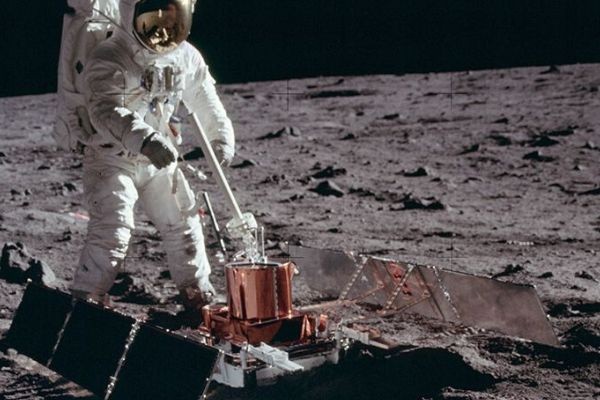
This generation is about to get a sneak-peek into what composes the fifty-year-old Moon dirt, a 842-pound stock of dirt stored from the previous excursion to the moon. Call it scientific prophecy as NASA scientists get to learn more than previous generation of scientist could ever have. With all the conspiracy theories about moon landings painted as fabrications, this gives everyone a chance to know the truth.
One of the concerns of the earth-bound man is getting materials to study with from the moon, the nearest celestial body to earth. Moon dirt has been investigated before, but with limited technology. Now, with the advanced digital technology and powerful computers, all the secrets of the moon stored in the dirt can be examined. This will include everything about how the moon formed and everything else about it.
Researchers are now armed with tools that are primed to probe deeper than any other man-made technology can. For instance, the smallest amount of dirt is enough for the astrological detectives who look at the bits and pieces of innate chemistry that will shock the world once again.
Jamie Elsila, an astrochemist, had this to say about studying the half-century old dirt: The goal is to capture remnants of the amino acids and remains of organic compounds that can be detected and look for formaldehyde or hydrogen cyanine, as the first chemicals that life built up on. Consider it a trip back in time, when the universe was younger and the moon could have been alive as earth is now.
Another aspect of the moon dirt which intrigues scientists is having no atmosphere to generate winds or storms that weather rocks. The moon's surface might be more preserved that everybody assumes, no erosion or other phenomena that usually happen on earth. As such, the chance that any evidence of possible life forms' existence might be available if it ever existed. Think of it as a pristine physical memento, a piece of something left behind to be remembered forever, only in terms of dirt.
Rocks on earth are not four-billion years old and give a snapshot of the galaxies primordial past. As another planetary science expert, Barbara Cohen will be incharge of studying the earth and analyzing the moon dirt thoroughly too. Hopefully, comparisons to the moon might clear up all aspects of earth's formation.
Another member of these astro-detective is Natalie Curran in the MNGRL lab, which is mostly staffed by women. Along with the entire, all-female staff, any sort of noble gas or radiation will be analyzed. All these findings will be tested and studied by these scientists, and get whatever new data that can be gleaned.
Expect this from the new team of NASA scientists who give insight into what the dirt will reveal to them, and everyone. Dirt is not cheap, and this fifty-year-old Moon dirt, will tell a tale, and that will be worth more than dirt.
Related Article: NASA Team Studying the Building Blocks of Life Will Analyze 50-Year-Old Apollo Moon Soil - Here's Why












